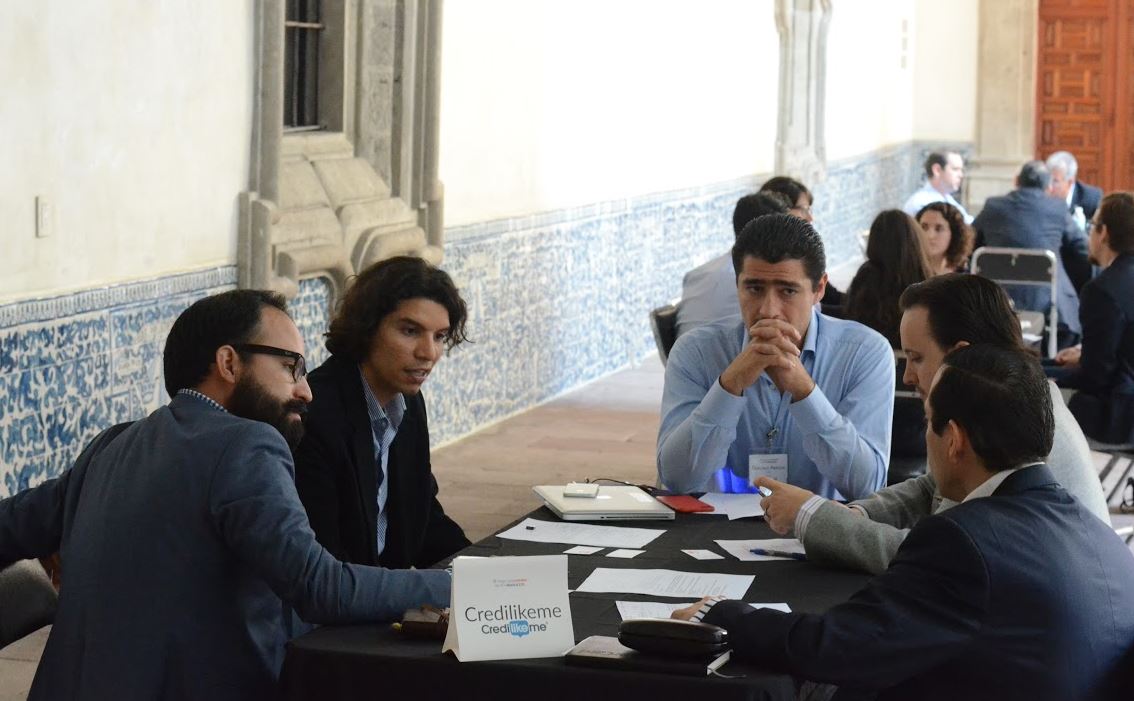Village Capital has relied on peer selection to build one of the most productive accelerator programs in the impact investing marketplace. In six years, “Vilcap” has launched more than 35 accelerator programs on five continents, investing $2 million in 55 early-stage companies. Entrepreneurs chose every investment.
 Now Ross Baird, Village Capital’s executive director, is taking peer selection to the big, or at least bigger, leagues with the world’s first peer-selected impact investment fund.
Now Ross Baird, Village Capital’s executive director, is taking peer selection to the big, or at least bigger, leagues with the world’s first peer-selected impact investment fund.
With $13.2 million already raised, VilCap Investments aims to make 100 investments in 75 peer-selected companies globally over the life of the fund. The fund’s limited partners include Sorenson Impact Fund, Chilton Capital Management, The Kapor Center for Social Impact, Village Capital co-founder Bob Pattillo, and Jean and Steve Case. Baird aims to raise $15 million by the final close in October.
[blockquote author=”Ross Baird, Village Capital” pull=”pullleft”]When entrepreneurs have control over the resources of the future, the process creates a level playing field for all.[/blockquote]
“We have always believed that by investing in companies through peer review we can build a more equitable, inclusive, and efficient investment strategy for the entrepreneurs of the future,” Ross Baird, Village Capital’s executive director, wrote in a blog post announcing the new fund.
The notion is that entrepreneurs, rather than investors, may be better equipped to select early-stage companies for investment. What’s more, such peer selection can significantly lower the transaction costs of making an investment. And lowering such overhead costs can allow funds to make investments in more innovative, riskier, and potentially high-impact ideas.
Village Capital has attracted another believer: the U.S. government. Laying the groundwork for the new fund last September, the U.S. Agency for International Development (USAID) Global Development Lab awarded Village Capital a five-year, $2.6 million grant to offset the fund’s operating costs. The grant was part of USAID’s Partnering to Accelerate Entrepreneurship (PACE) Initiative to help accelerator programs like Village Capital to bridge the “pioneer gap” in funding that exists between early stage enterprises and impact investors looking for investable ventures.
“USAID’s role is utterly pivotal,” Chilton’s Ana DeRosa told Devex at the time of PACE award announcement. “It’s an extraordinary catalytic move.” The grant also sets up a test. “The idea is that in five years, when USAID funding runs out, Village Capital would have made the case for this type of investment vehicle and will be able to do it without the additional support,” wrote Devex.
For Village Capital, the USAID grant helped commercial investors warm to the economics of a peer-selected fund that makes a high volume of smaller investments. “PACE’s innovative structure is helping us resource our outstanding team to manage investments in areas of the world that are not traditional hotbeds—like Nairobi and Mexico City—while keeping the economics of the fund such that we can create an attractive investment opportunity for mainstream investors,” wrote Baird.
Village Capital’s original program works like this: the firm selects a cohort of 12 or so entrepreneurs all working in the same sector working to solve similar problems in the same geography—agriculture in Kenya, financial inclusion in Mexico, health in Boston, education in India, energy in Houston. After participating in a Village Capital business accelerator program stretched out over three four-day workshops, the entrepreneurs rate each other based on six investment criteria. The two highest rated enterprises each get $50,000 in pre-committed investment, $25,000 each from Village Capital and $25,000 matched by a sponsoring co-investor. Village Capital is exploring upsizing the investment to $50,000 in geographies like the U.S., where $50,000 could hire a developer in full.
The new fund will enable Village Capital to make follow-on investments into high-performing portfolio companies in the range of $150,000 to $500,000. The firm made its first follow-on investment from the new fund in Indiana-based Spensa Technologies, a firm that produces precision pest management products for farmers, as part of their Series A equity round.
ImpactAlpha recently profiled Phoenix-based eMoneyPool, an online facilitator of savings pools and winner of Village Capital’s 2014 U.S. financial inclusion program. “To take part in the program and win was key,” said eMoney Pool co-founder Francisco Cervera. “We gained important knowledge in the fintech industry but also gained the exposure we needed.”
The early results of the peer-selected model are compelling. The 55 entrepreneurs selected for Village Capital investments since its launch in 2009 have raised $50 million in follow on capital and created 7,000 jobs. An astonishing 93 percent are still in business and growing (the National Venture Capital Association estimates 25 to 30 percent of venture-backed businesses fail).
Another impact of entrepreneurs making investment decisions: inclusiveness. “While 75 percent of venture investments go to three US states (California, Massachusetts, and New York), 88 percent of Village Capital’s investments support entrepreneurs in the rest of the world.” writes Baird. “And while eight percent of traditional venture investments go to teams with women co-founders, 30 percent of Village Capital’s portfolio companies have female founders.”
“For us, this was not prescriptive—when entrepreneurs have control over the resources of the future, the process creates a level playing field for all,” he says.











